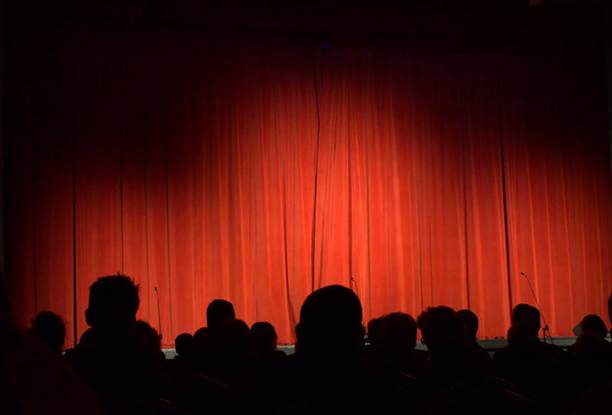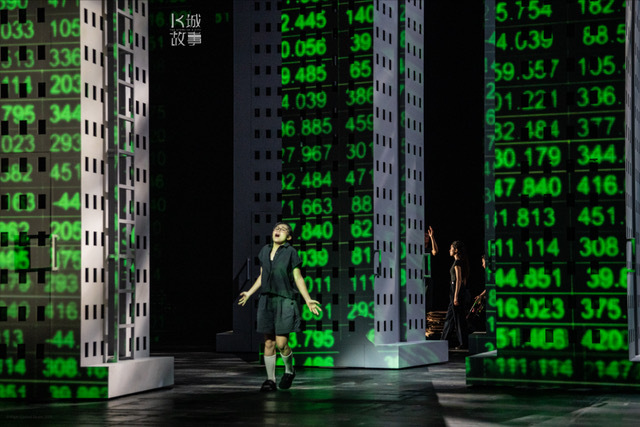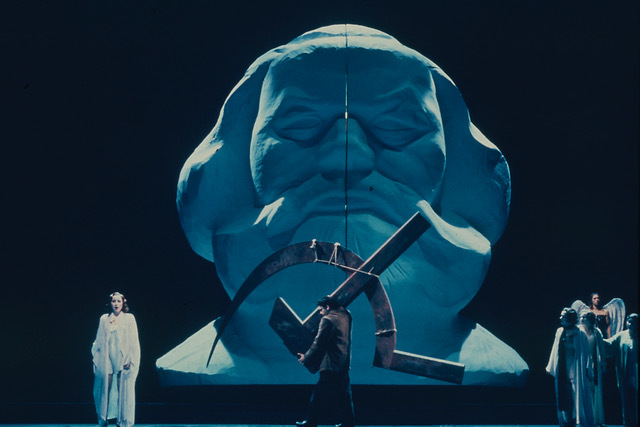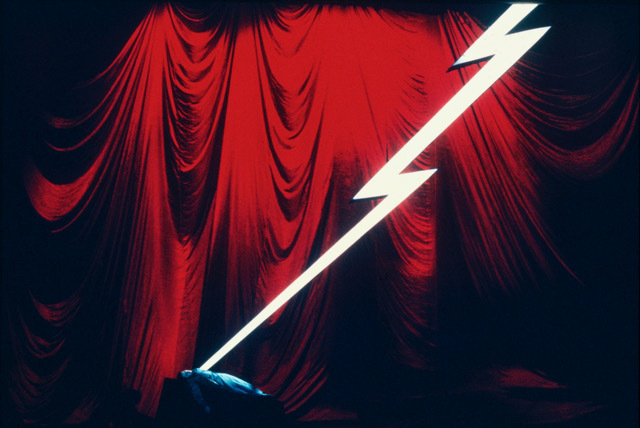
In the ever-evolving landscape of contemporary theater, few figures embody the fusion of classical tradition and boldness. Travis Preston stands as a singular force in the ever-shifting world of theater, where age-old stories meet fearless innovation. As the Dean of the School of Theater at the California Institute of the Arts (CalArts) and the Founding Artistic Director of the CalArts Center for New Performance (CNP), Travis Preston has spent decades shaping the future of the performing arts. His work spans continents, genres, and mediums; his creations traverse borders, from intimate experimental pieces to grand operatic spectacles. With a career rooted in a deep understanding of human psychology and dramatic storytelling, Preston continues to push boundaries, collaborating with artists worldwide to create productions that resonate on profound emotional and intellectual levels. As he prepares for his upcoming role on the Artistic Committee of the Wuzhen Theatre Festival in China, it's an opportune moment to explore the breadth of his contributions, particularly through the lens of his diverse directorial projects.
Born on September 20, 1963, Travis Preston embarked on a lifelong love affair with the arts, guided by a rare fusion of intellect and creativity. At Indiana University, he pursued a Bachelor of Arts in Theater and Psychology, graduating Summa Cum Laude and earning a coveted spot in Phi Beta Kappa. This dual passion for stagecraft and the intricacies of the human psyche became the cornerstone of his work, allowing him to unearth the hidden motivations driving characters and stories. His time at Indiana wasn’t just about accolades; it was where he began to see theater as a mirror to the soul, a lens for exploring what makes us human. Preston’s journey continued at Yale University’s School of Drama, where he earned a Master of Fine Arts in Directing as a Brodkin Scholar. There, immersed in the rigor of Yale’s program, he sharpened his ability to navigate knotty scripts and orchestrate the delicate dance of ensemble casts. These formative years armed him with a unique toolkit part artist, part psychologist laying the groundwork for a career that took flight in the 1980s. His early experiences fuelled a global vision, preparing him to craft performances that resonate across cultures, from intimate stages to the grand arenas of festivals like Wuzhen

From his earliest days as a director, Travis Preston revealed a knack for breathing new life into timeless tales, reimagining classic texts with a modern heartbeat. He launched his career with a daring production of Aeschylus’s Prometheus Bound in Poland, a bold leap onto the world stage that spoke to his courage in connecting with global audiences. Picture a stark, windswept set where a defiant figure, chained to a craggy rock, embodied rebellion and anguish under a flickering sky, an image that wove ancient tragedy with questions that still haunt us today. This ability to make the old feel urgent became a hallmark of Preston’s work. Years later, in 2012, he brought this same intensity to Henrik Ibsen’s The Master Builder at London’s Almeida Theatre, starring Stephen Dillane and Gemma Arterton. Here, Preston dove into the protagonist’s spiralling psyche, crafting a stage of sharp, teetering structures and moody, shifting lights that mirrored a soul unravelling. Critics were captivated by the production’s raw power, its stark sets and dramatic shadows painting ambition’s fragile edge, a vivid reflection of Preston’s gift for fusing story and spectacle.
Preston’s artistry extends just as powerfully into opera, where he has left an unforgettable mark. His 2004 staging of Modest Mussorgsky’s Boris Godounov at the Hamburg State Opera was a triumph, plunging audiences into the Tsar’s tormented mind. Through haunting multimedia projections, he conjured ghostly visions of guilt and revolt that seemed to creep across the stage, drawing gasps from the crowd. This production, lauded for its depth, showcased Preston’s talent for uniting international artists, designers, singers, and crew into a shared, immersive dream. In 1999, his direction of Luigi Nono’s Al Gran Sole Carico D’Amore at the same theater earned Opern Welt’s praise as Germany’s finest opera that year. Weaving together stories of revolution and women’s resilience, Preston used ethereal, abstract backdrops and synchronized choral movements to amplify the score’s political fire. These operas linger in memory, their vast, dreamlike stages and choreographed ensembles a testament to Preston’s devotion to visual storytelling and scenes that stay with you, vivid as a painting, long after the lights dim.
At the heart of Travis Preston's career lies his transformative work at CalArts, where he has fostered an environment of experimentation and collaboration. Joining the faculty in 1999 as head of the directing program, he founded the Center for New Performance in 2003, envisioning it as a hub for groundbreaking works that transcend traditional boundaries. Under his leadership, CNP has produced and toured innovative pieces that integrate technology, multimedia, and interdisciplinary elements. One such project is Fantômas: Revenge of the Image, which premiered at the Wuzhen Theatre Festival in China in 2018. Co-created with film scholar Tom Gunning, this multimedia spectacle explored themes of illusion and reality, drawing from early 20th-century serial novels and silent films. The production utilized projection mapping, live actors, and digital animations to create a labyrinthine narrative, with visuals of shadowy figures and surreal cityscapes dominating the stage. Preston's direction emphasized the interplay between human performers and technological interventions, resulting in a piece that was both haunting and hypnotic. Photographs from the rehearsals and performances capture Preston immersed in the creative process, guiding actors through intricate blocking amid a sea of screens and lights, images that encapsulate his hands-on approach.
Another cornerstone of Preston's portfolio at CNP is Augustine Machine, a "visual poem" he directed that addresses the historical and psychological dimensions of hysteria. Developed in collaboration with France's Conservatoire National Supérieur d’Art Dramatique, this 2023 production featured a global ensemble cast and incorporated video projections, dance, and collage techniques. Preston's vision transformed the stage into a dreamlike realm, where performers embodied fragmented memories and societal pressures. The work's innovative use of movement and media not only challenged conventional theater but also invited audiences to reflect on mental health through a historical lens. Similarly, Scene With Cranes, written by Octavio Solis and directed by Chi-wang Yang under CNP's umbrella, marked the center's 20th anniversary in 2023. This emotionally charged play delved into grief and loss within an East LA family, blending realism with mythological elements inspired by Jean Sibelius's composition. Preston's oversight as Artistic Director ensured the production's seamless integration of cultural narratives, with striking visuals of ethereal cranes symbolizing transcendence amid tragedy.

Preston's commitment to new voices is evident in projects like Ha-M-Let, a multilingual reinterpretation of Shakespeare's Hamlet by Peter Mark, presented at CNP. Utilizing a projection cube for digital art, animations, memes, and multicultural imagery, this work reimagined the classic tragedy for a digital age. Preston's involvement in curating such pieces highlights his role in bridging generational and cultural divides, fostering collaborations that yield fresh perspectives. His earlier work, such as Brewsie and Willie (2010/11), adapted from Gertrude Stein's writings with Marissa Chibas and Erik Ehn, premiered at CNP and explored post-World War II disillusionment through fragmented dialogue and minimalist staging. Visuals from this production often feature Preston in rehearsal, surrounded by props and scripts, underscoring his collaborative ethos.
Beyond CalArts, Travis Preston's international footprint is vast. His 2017 direction of Sam Shepard's Buried Child for the Hong Kong Repertory Theatre's 40th anniversary brought American Gothic realism to Asian audiences, emphasizing familial secrets and decay through evocative set designs of crumbling farms and shadowed interiors. This production, rich in atmospheric imagery, reinforced Preston's ability to adapt Western texts to diverse cultural contexts. In France, his 2016 piece Unseen Energy at La Comédie de Saint-Etienne delved into abstract concepts of energy and space, using experimental lighting and soundscapes to create an otherworldly experience. Preston's 1999 Diva on the Verge at Paris's Opera Comique, starring Julia Migenes, was a world premiere that blended cabaret and opera, capturing the diva's tumultuous life through vibrant costumes and dynamic choreography.
Preston's operatic endeavors extend to Georges Bizet's The Pearl Fishers (1999) at St. Louis Opera and Gioachino Rossini's Semiramide (2000) at Minnesota Opera, where he infused exoticism and grandeur with psychological depth. His 1999 Al Gran Sole Carico D’Amore not only won accolades but also featured innovative use of space, with performers navigating vast, symbolic sets that evoked revolutionary fervor. These productions often include memorable visuals, elaborate costumes, and dramatic tableaux that have been captured in promotional photography, contributing to Preston's growing digital presence.
As Travis Preston heads to China to serve on the Artistic Committee of the Wuzhen Theatre Festival, his influence on global theater continues to expand. Appointed in 2022 as the only non-Chinese member, Preston brings his expertise to this prestigious annual event in the ancient town of Wuzhen. The festival, known for its blend of traditional and contemporary performances, provides a platform for cross-cultural exchange. Preston's prior involvement, including presenting Fantômas there, positions him ideally to shape its future programming. This role not only amplifies his international stature but also opens doors for more collaborations between Western and Eastern artists. In a world where cultural bridges are more vital than ever, Preston's participation promises to infuse the festival with innovative ideas, potentially leading to new productions that fuse diverse traditions.

Throughout his career, Travis Preston has emphasized collaboration and empathy as cornerstones of directing. "Theater is about assembling a dynamic puzzle where every piece like actor, designer, and technician, contributes to a greater whole," he has noted in discussions on the director's role. This philosophy is evident in his administrative work at CalArts, where he oversees curricula that prepare students for multifaceted careers in performance, design, and production. His awards, including being named Chevalier of the Order of Arts and Letters by the French Minister of Culture in 2010, reflect his global impact. From National Endowment for the Arts fellowships to citations for best productions, Preston's accolades affirm his mastery.
In film, Preston has extended his directorial vision, co-directing A House is not a Home (2006) with Lewis Klahr and directing Astonished (1989), a feature based on Crime and Punishment. These ventures showcase his versatility, blending narrative cinema with theatrical elements.
Looking ahead, Travis Preston's legacy is one of relentless innovation. His projects not only entertain but provoke thought, challenging audiences to engage with timeless themes through modern lenses. Travis Preston’s legacy as a visionary in the performing arts is poised to evolve further, pushing the boundaries of theater in ways that resonate with a rapidly changing world. As he continues his contributions to prestigious platforms like the Wuzhen Theatre Festival, Preston is likely to explore innovative intersections of technology, narrative, and human connection. His future projects could embrace immersive technologies, such as augmented reality (AR) and virtual reality (VR), to create multi-sensory experiences that dissolve the traditional divide between audience and performer. Imagine a production were spectators don AR headsets, stepping into the psychological landscapes of characters, or a hybrid performance blending live actors with holographic projections, redefining spatial storytelling.
Preston’s commitment to timeless themes—identity, power, and human struggle—could lead him to tackle pressing global issues like climate change or social justice through bold, allegorical works. By collaborating with diverse artists from under –represented communities, he seeks to amplify marginalized voices, crafting narratives that challenge systemic inequities while maintaining his signature visual splendour. For instance, a future project could reimagine a classic myth to reflect modern migrations, using multimedia installations to evoke the emotional weight of displacement.
Additionally, Preston could expand his mentorship, nurturing the next generation of theatre-makers through workshops or digital platforms, sharing his creative process globally. His ability to merge stark intensity, as seen in Prometheus Bound, with technological innovation, like Fantômas, positions him to pioneer new forms of interactive storytelling, perhaps integrating AI-driven narratives where audiences influence outcomes in real-time. His legacy will likely inspire a renaissance in theater, proving that art, when fuelled by vision and collaboration, can transcend boundaries and profoundly shape how we understand the human experience.